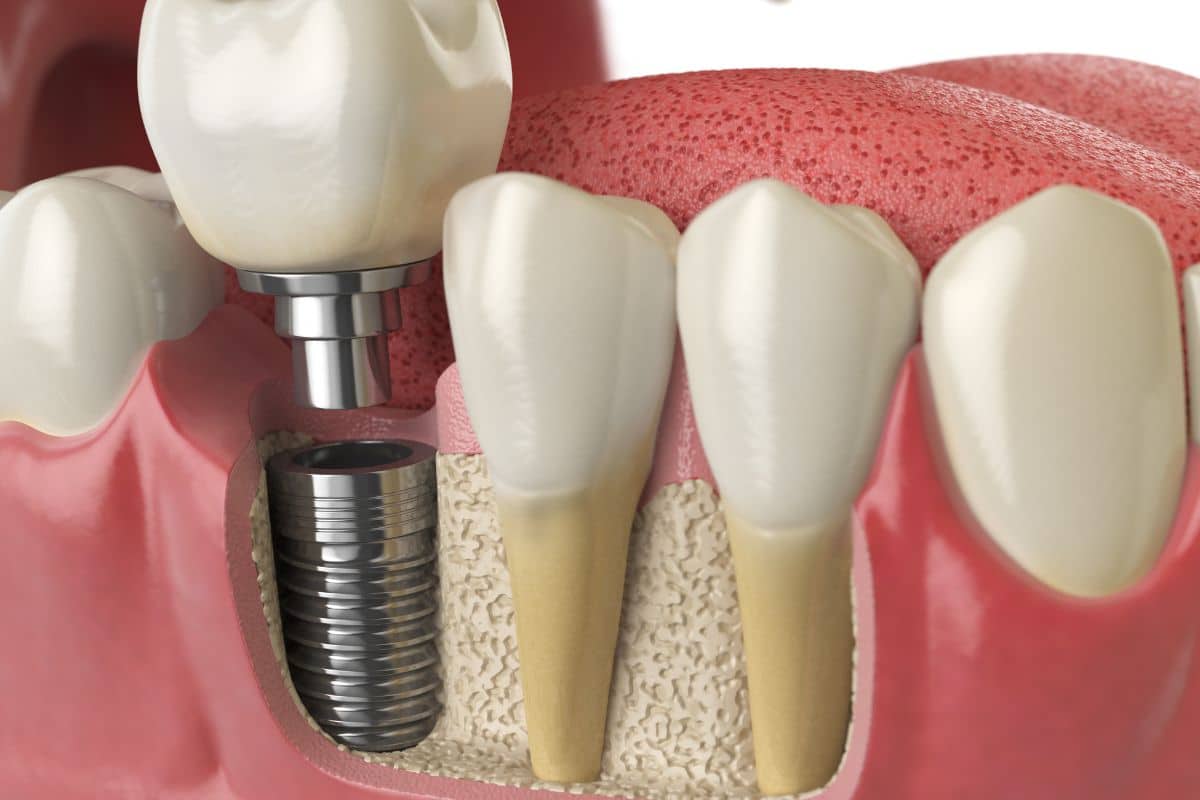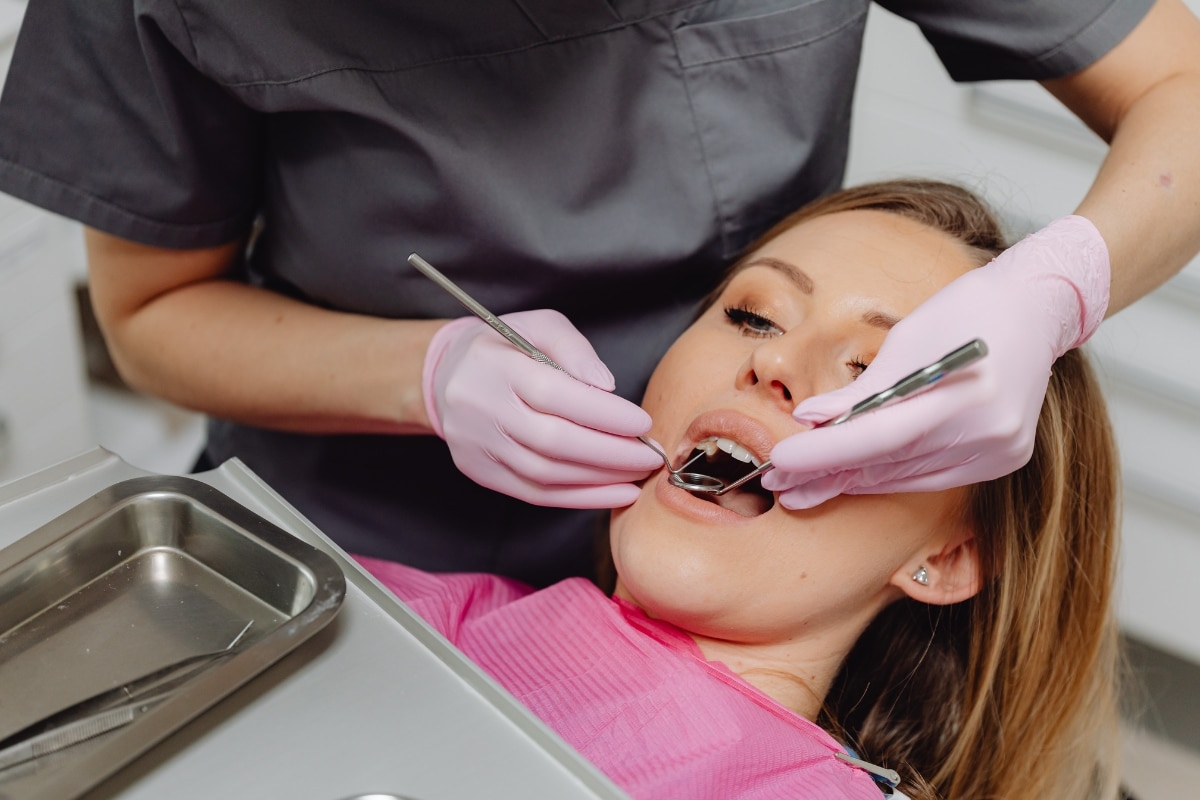Pay Online
The Importance of Dental Insurance for Your Family’s Financial Health

The importance of dental insurance for your family’s financial health! While we often prioritize our physical well-being, it’s essential not to overlook the significance of dental care. From routine check-ups to unexpected emergencies, having dental insurance can provide peace of mind and protect your family from costly expenses down the road.
We’ll explore what dental insurance is, discuss the different types of plans available, highlight the benefits it offers, offer tips on choosing the right plan for your family, and share strategies for maximizing your coverage. So let’s dive in and discover how dental insurance can safeguard both your smile and your wallet!
What is Dental Insurance?
Dental insurance is a form of health coverage specifically focused on dental care. It helps to offset the costs associated with various dental treatments and procedures, ensuring that you and your family can maintain good oral health without breaking the bank.
In essence, dental insurance works by providing coverage for a wide range of services, including routine check-ups, cleanings, x-rays, fillings, extractions, root canals, and even orthodontic treatments. The specifics of what is covered will depend on your chosen plan.
One key aspect to consider when it comes to dental insurance is that most plans operate on a network-based system. This means that they have contracts with specific dentists or dental practices who agree to provide services at reduced rates. Visiting these in-network providers usually results in lower out-of-pocket costs for you.
However, it’s also important to note that some plans offer flexibility in terms of seeing out-of-network dentists – although this may come with higher costs or different levels of coverage. Understanding the network options available within your plan can help you make informed decisions about which dentist to choose.
Having dental insurance not only provides financial protection but also encourages regular preventive care by covering routine visits. By catching potential issues early on through check-ups and cleanings, you can avoid more extensive (and expensive) treatments down the line.
Remember: maintaining good oral health is an investment in your overall well-being!
Types of Dental Insurance Plans
When it comes to dental insurance, there are a few different types of plans to consider. Understanding the differences between these options can help you choose the one that best suits your family’s needs.
1. Traditional Indemnity Plans:
These plans allow you to visit any dentist you choose and typically offer the most flexibility in terms of coverage. You pay for services upfront and then submit a claim to be reimbursed by the insurance company.
2. Preferred Provider Organization (PPO) Plans:
With PPO plans, you have access to a network of dentists who have agreed to provide services at discounted rates. You can still see out-of-network providers, but your costs may be higher.
3. Health Maintenance Organization (HMO) Plans:
HMO plans require you to select a primary care dentist from within their network, who will coordinate all your oral healthcare needs. These plans often have lower premiums but less choice in terms of providers.
4. Discount Dental Plans:
Unlike traditional insurance, discount dental plans provide reduced rates on dental procedures when you visit participating dentists in their network. There are no deductibles or annual maximums with these plans.
5. Direct Reimbursement (DR) Plans:
This type of plan is offered by some employers as an alternative to traditional insurance coverage since it reimburses employees directly for their dental expenses based on the amount spent rather than specific treatments covered.
By understanding these various types of dental insurance plans, you can make an informed decision about which one aligns best with your family’s financial situation and oral health needs.
Benefits of Having Dental Insurance
Dental insurance helps to reduce the cost of routine dental care such as check-ups, cleanings, and X-rays. These preventive services are essential in maintaining good oral health and catching any potential problems early on. By having coverage for these services, you can save money in the long run by avoiding more expensive treatments.
In addition to preventive care, dental insurance also covers a portion of the costs associated with restorative procedures like fillings, crowns, and root canals. These treatments can be quite costly without insurance coverage, making it difficult for many families to afford necessary dental work.
Furthermore, having dental insurance encourages regular dentist visits. When you have coverage in place, there is less hesitation or financial burden when scheduling appointments for yourself and your family members. This promotes consistent oral healthcare habits that contribute to overall well-being.
Moreover, some dental plans may offer orthodontic coverage which includes braces or clear aligners for both children and adults. Orthodontic treatment can significantly improve not only one’s smile but also their bite alignment and overall oral function.
Lastly, yet importantly, dental emergencies are unpredictable but having insurance ensures that unexpected expenses related to emergency treatments like tooth extractions or repair after an accident are covered partially by the policy.
Overall, having dental insurance provides peace of mind knowing that you have financial protection against various aspects of oral healthcare.
Thus, it is important to carefully choose a plan that suits your family’s needs ensuring access to quality dentistry while being mindful of budget considerations
How to Choose the Right Dental Insurance Plan for Your Family
Choosing the right dental insurance plan for your family is an important decision that can have a significant impact on your financial health. With so many options available, it can be overwhelming to determine which plan will best suit your needs. However, by considering a few key factors, you can make an informed choice.
First and foremost, consider the coverage offered by each dental insurance plan. Look for plans that cover preventive care such as cleanings and exams, as well as basic services like fillings and extractions. It’s also important to assess whether major procedures such as root canals or orthodontic treatments are covered.
Another factor to consider is the network of dentists associated with each plan. Check if your preferred dentist is included in the network or if there are other reputable providers available nearby. Additionally, evaluate whether the plan allows for flexibility in choosing out-of-network providers if needed.
Cost is another crucial consideration when selecting a dental insurance plan. Compare monthly premiums, deductibles, and copayments across different plans to ensure they align with your budgetary constraints while still providing adequate coverage.
Take into account any additional benefits or perks offered by certain plans. Some may include discounts on prescription medications or vision care services that could further enhance the value of the coverage.
By carefully assessing these factors – coverage provided, dentist networks, cost considerations, and additional benefits – you’ll be able to choose a dental insurance plan that meets both your family’s oral healthcare needs and financial goals
Tips for Maximizing Your Dental Insurance Coverage
1. Understand your coverage: Take the time to thoroughly read and understand your dental insurance policy. Know what procedures are covered, what the limits are, and any specific requirements or restrictions.
2. Find in-network dentists: Most dental insurance plans have a network of preferred providers who offer discounted rates. By choosing an in-network dentist, you can save money on treatments and services.
3. Schedule regular check-ups: Prevention is key when it comes to maintaining good oral health. Make sure to schedule regular check-ups with your dentist, as most dental insurance plans cover preventive services like cleanings and exams at little or no cost.
4. Take advantage of annual maximums: Many dental insurance plans have an annual maximum limit on coverage. If you have extensive treatment needs, consider scheduling them strategically over multiple years to make the most out of your benefits.
5. Consider pre-treatment estimates: Before undergoing major procedures or treatments, ask your dentist for a pre-treatment estimate that outlines the costs involved. This will help you determine how much will be covered by your insurance and allow you to plan accordingly.
6. Keep track of claims and payments: Stay organized by keeping records of all dental claims submitted and payments made by both you and your insurance company. This can help avoid any confusion or disputes later on.
7. Ask about flexible spending accounts (FSAs) or health savings accounts (HSAs): Some employers offer these types of accounts that allow employees to set aside pre-tax dollars for medical expenses, including dental care not covered by insurance.
Remember that each individual’s situation may vary when it comes to maximizing their dental insurance coverage; therefore, it’s important to consult with your provider directly for personalized advice and insights into how best to utilize your specific plan.
Dental insurance is a crucial component of your family’s financial health. By having the right dental insurance plan in place, you can protect yourself and your loved ones from unexpected dental expenses and ensure that everyone has access to necessary oral healthcare.
Remember to carefully consider the types of plans available, assessing their coverage limits, premiums, deductibles, and network providers. This will help you choose a plan that aligns with your family’s specific needs and budget.
Additionally, make sure to maximize your dental insurance coverage by staying proactive with preventive care such as regular check-ups and cleanings. Utilize all the benefits offered by your plan such as free preventative services and take advantage of any discounts or savings programs that may be available.
By prioritizing dental insurance for your family’s financial well-being, you are not only safeguarding against potential costs but also promoting good oral health practices. So don’t wait until an emergency strikes – start exploring dental insurance options today and give yourself peace of mind knowing that your family’s smiles are protected!
Recent Posts

Why Is It Critical to Replace a Missing Molar Even If It’s Not Visible When I Smile?

What Should I Do If My Child Knocks Out a Permanent Tooth in Elgin?

Can Invisalign Fix Overbite? How It Solves Complex Dental Issues in Elgin, IL

How Does Thumb-Sucking or Pacifier Use Affect Teeth?


